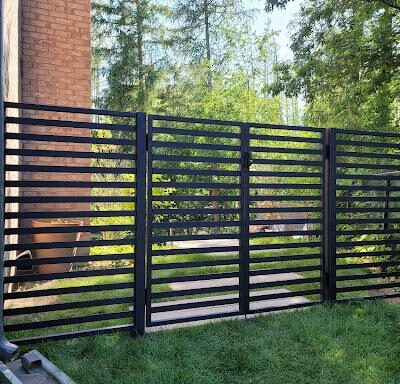1. Durability and Strength
Iron Fencing: Wrought iron and cast iron are traditional choices known for their strength and durability. Wrought iron is highly resistant to impact and can withstand harsh weather conditions. However, cast iron, while strong, is more brittle and can crack under extreme pressure.
- Best for: High-security applications and areas where long-lasting durability is essential.
- Key Feature: Wrought iron fences are known for their ability to withstand significant stress and damage.
Steel Fencing: Steel fences, including galvanized and stainless steel options, offer superior strength and durability. Galvanized steel is coated with a protective layer of zinc to prevent rust and corrosion, while stainless steel contains chromium, enhancing its resistance to the elements.
- Best for: Areas prone to severe weather or where maximum strength is required.
- Key Feature: Steel fences are less likely to rust and corrode compared to iron, especially when properly coated or treated.

